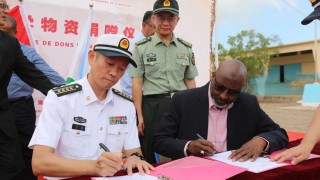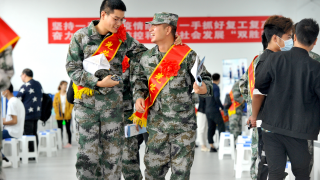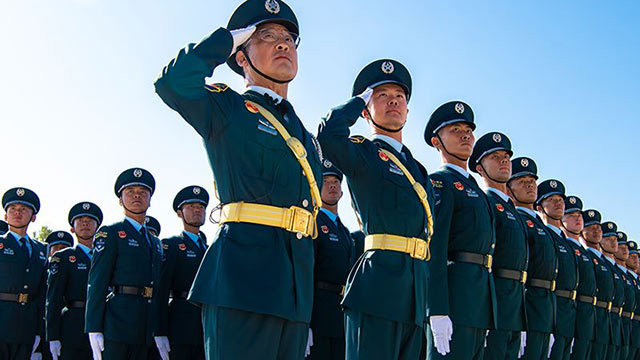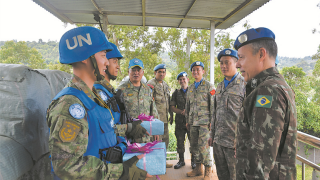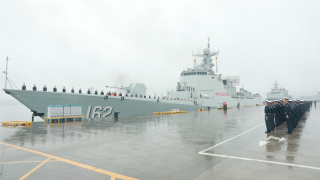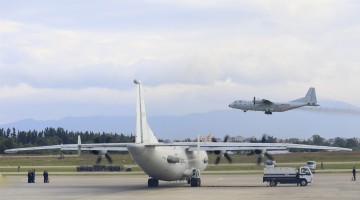By Wang Xinyuan
In the context of the accelerated evolution of the world pattern, the situation in the Asia-Pacific region was stable in general in 2022. However, obsessed with Cold War mentality, the US deeply meddled in the Asia-Pacific region, which posed an impact on the regional stability. Looking forward to 2023, power manipulation, camp confrontation, military deterrence, and zero-sum concepts will continue to produce a negative impact on the security and stability of the Asia-Pacific region. Asia-Pacific countries will face challenges in managing crises and conflicts, protecting security and order and enabling common development.
First, geo-political game increases security risks. The US released the National Security Strategy in 2022. The report is full of Cold War mentality and zero-sum game thinking. It deliberately exaggerates geopolitical conflicts and great power competition and intends to create camp confrontation in the Asia-Pacific region. Based on this, the US will uphold the strategic tone of great power competition in 2023, continue to project resources to the Asia-Pacific region, and strengthen multiple alliance systems. The US-led NATO is also gradually expanding its cooperative relationship with so-called "Asia-Pacific partners" to expand its influence in the Asia-Pacific region. In April 2022, Japan, the ROK, Australia, and New Zealand were invited to participate in the Meetings of NATO Ministers of Foreign Affairs , and then the senior military officials of the four countries were invited to participate in the Military Committee in Chiefs of Defense Session . In the future, the involvement of NATO member countries may bring about a destructive impact on the security structure of the Asia-Pacific region and aggravate geopolitical tensions.
Second, military wrestling exacerbates the security dilemma. In January 2022, Japan and Australia signed the Reciprocal Access Agreement (RAA) on the joint training and disaster response of the Japanese Self-Defense Forces (JSDF) and the Australian Defense Force(ADF). The agreement made it more convenient and smoother for the two countries to deploy troops to each other and conduct security cooperation. In December 2022, the Japanese government officially issued a new version of the three security documents including the National Security Strategy (NSS), National Defense Program Guidelines (NDPG) and Medium-Term Defense Program (MTDP). These documents clearly stated that Japan will develop a "counterattack capability" that can directly attack enemy missile bases. Japan will greatly increase its defense budget and adopt a number of new measures to strengthen its defense capabilities, according to the documents. Analysts pointed out that in the next few years, Japan's defense force will be radically strengthened under the impetus of the new security documents, and the security and stability situation in the Asia-Pacific region will face a serious test.
Finally, games in the non-military field strike joint cooperation. In May 2022, US President Joe Biden officially launched the Indo-Pacific Economic Framework for Prosperity (IPEF) during his visit to Japan. Analysts said that the core goal of the US-led IPEF is to ensure, strengthen, and maintain its economic dominance in the region, and thereby revitalize the US economy. In 2023, the Biden administration may continue to build exclusive "modular, topical alliances" in the fields of economy, trade, technology, environmental protection, and climate change, draw some Asia-Pacific countries to its side, or even force them to take sides.
At present, the Asia-Pacific region has become an important growth pole for global economic development and one of the most dynamic regions in the world. Countries in the Asia-Pacific region have an urgent desire for peaceful development, prosperity and stability. In the face of turbulences caused by US-led Western countries, Asia-Pacific countries should maintain strategic rationality, and uphold the principles of mutual respect, accommodating concerns, equal dialogue, and peaceful consultations to resolve conflicts and differences. Countries in the Asia-Pacific should remain committed to regional common security, abandon the "small circle" thinking, create a new sustainable security framework, build conditions for unleashing market opportunities, growth opportunities, and cooperation opportunities, and move towards the goal of building an Asia-Pacific community with a shared future.
